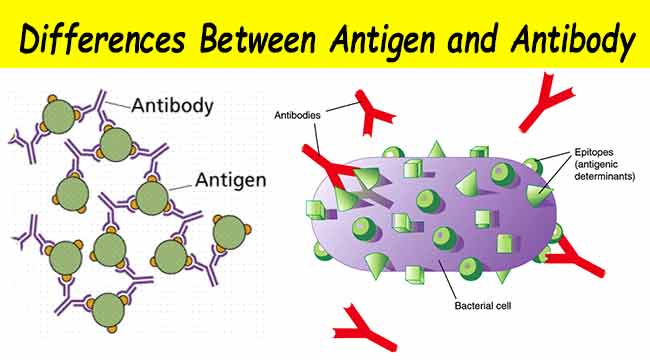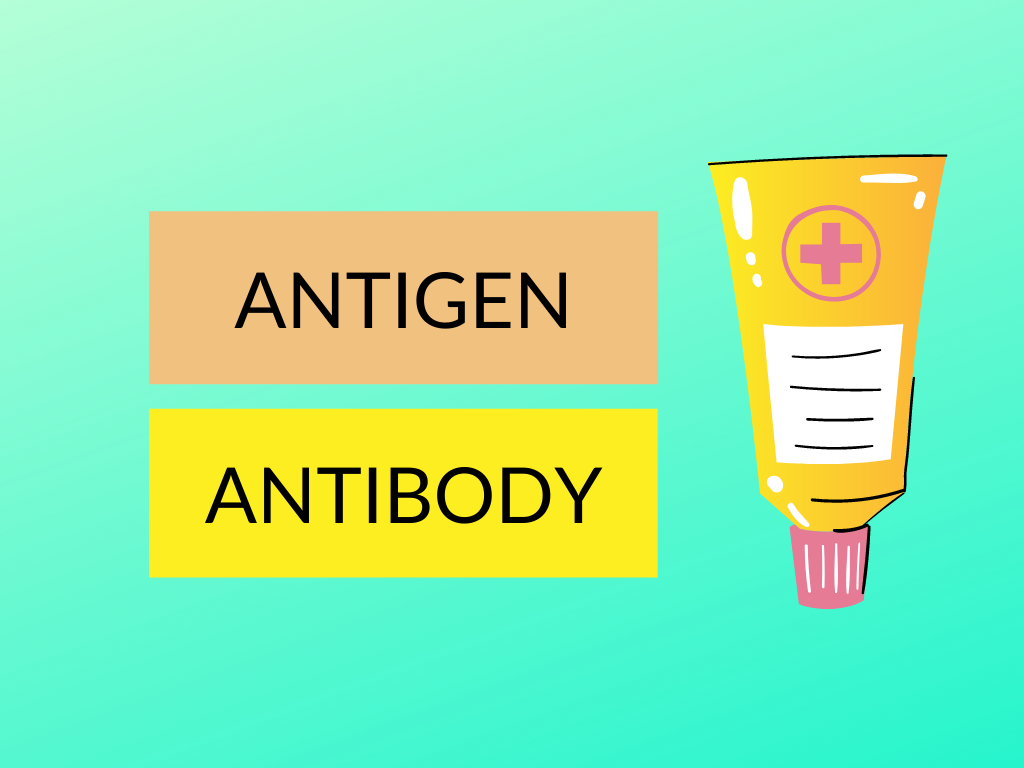An antigen is a substance that can induce the immune system to produce antibodies against it. An antibody is a protective protein produced by the cells of the immune system in order to attack antigens. Antigen and antibodies interaction is specific and they bond with each other when their structural shapes are complementary.
Antigen:
Antigens are usually bacteria or virus but there can be other substances from outside your body that retain your health this battle is called an immune response and Agents are substances or toxins in your blood that trigger your body to fight them. An antigen is a substance that creates a cascade of activities prompting and immune response when introduced into the body the substance can be molecules like proteins or cells like bacteria. There are two types of antigens there are self antigens and non self antigens. The self antigens do not provoke reactions from immune system and non self antigens are the foreign bodies.
Antibodies:
An antibody is a different size protein molecule which is present in the blood and secretion and acts upon the antigens to produce the ultimate resolution of inactivation. Antibodies are mostly in Y shaped and those two hands of the Y are attached to the key of the epitope of antigen. These Y shaped proteins are made by our immune systems lymphocytes. One of the function of the antibodies is that they block the antigens away from your healthy cells. Some of the Antibodies are
IgG, IgM, IgA, IgD.
Each type of antibody has its own functions against the different types of antigens and they play a major role in body’s defense against diseases.


Difference between Antigen and Antibodies:
| Antigen | Antibody |
|---|---|
| Definition | |
| An antigen is a substance that can induce the immune system to produce antibodies against it | Antibody is a protective protein produced by the blood cells of the immune system in order to attack antigens |
| Effects | |
| An antigen either cause diseases or allergic reactions | Antibody protect the body from antigens either by immobilizing the antigen or lessen the pathogen |
| Significance | |
| The significance of antigen is they have the combination from polysaccharides | The significance of antibody is purely made up of proteins |
| Also called as | |
| Antigens are also called as immunogens | Antibodies are also called as immunoglobulins |
| Cells | |
| Antigens can be cells | Antibodies are produced from the cells |
| Types | |
| There are two types of antigen Self antigens and non self antigens | There are five main categories of antibodies IgA, IgD, IgE, IgG and IGM. |
| Examples | |
| Example of antigens are Proteins, carbohydrates, lipids and nuclei acids | Example of antibodies Glycoproteins |
Preparation of Vaccines with Antigens and Antibodies(Conclusion):
Antigen and Antibodies helps a lot in the preparation of vaccines. Vaccines generally boost the number of antibodies in your body against a specific antigen. When vaccine enters your body your blood cells respond as a naturally occurring antigen has attacked your body. This will make the antibodies know how to react to the particular antigens and be prepared when the real antigens occurred in the body.
The memory blood cells response is called a secondary immune response and its much faster and more effective than the reaction your body which would have to the infection if you had not been vaccinated.
If you want to read more about Difference between Neutrophils and Basophils click here.


